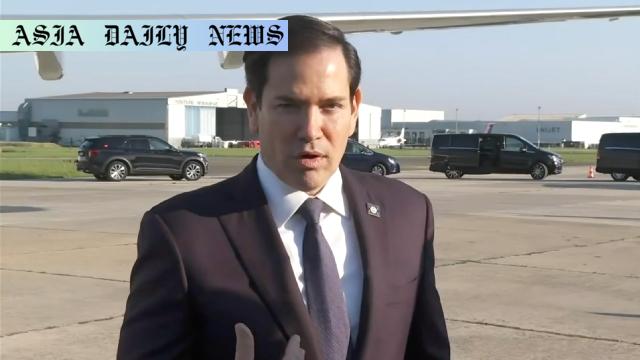Ukraine mediation faces uncertainty as US Secretary of State Marco Rubio hints at halting ceasefire efforts amid stalled talks.
US Secretary of State Marco Rubio suggests ceasefire mediation in Ukraine may be abandoned soon.
The decision comes as efforts stagnate, with Rubio highlighting a matter of days to decide progress.
Rubio held talks with French President Macron and Ukrainian officials to present a peace framework.

US Raises Doubts on Continued Mediation Efforts in Ukraine
The ongoing conflict between Russia and Ukraine has brought global instability and humanitarian crises, yet recent remarks by US Secretary of State Marco Rubio suggest that President Donald Trump may soon abandon US mediation efforts. After discussions with French President Emmanuel Macron and senior Ukrainian officials, Rubio indicated that the US administration is considering halting its commitment to brokering a ceasefire if no tangible progress is made within days. This shift comes after months of stagnation in negotiations aimed at bringing peace to a war-torn region.
A Framework for Peace and the Stalemate
During high-level talks in Paris, Rubio presented a “framework for peace in Ukraine,” though details of this framework remain undisclosed. He emphasized the urgency with statements such as “we need to determine very quickly now” and “we are not going to continue with this endeavor for weeks and months on end.” Rubio’s comments reflect frustration over the ongoing impasse in getting both Russia and Ukraine to agree on concessions necessary for progress.
What This Means for the Future of Ukraine
Rubio’s remarks are likely to fuel speculation about the implications for Ukraine if the US retracts its mediation efforts. The lack of international engagement could dampen hopes for a ceasefire, leaving Ukrainians facing prolonged conflict and uncertainty. As of now, the US seems poised to reassess its role, potentially leaving this critical diplomatic mission to other stakeholders such as France, Germany, or the UN. The next few days may prove decisive in determining whether the US stays involved or shifts its focus elsewhere as the region grapples with ongoing turmoil.



Commentary
The Complexity of US Mediation in Ukraine
When it comes to international conflicts like the one in Ukraine, the role of global superpowers is often laden with both opportunity and risk. The United States, under President Donald Trump’s administration, has maintained its relevance as a key mediator in the Ukraine-Russia dispute. However, Secretary of State Marco Rubio’s latest remarks shed light on an emerging frustration within the US government over slow progress.
Evaluating the Potential Outcomes
While it is understandable that the US does not wish to invest indefinite resources into a conflict with no visible resolution, the consequences of halting these efforts should not be underestimated. Diplomatic negotiations often require extended timelines and perseverance. By withdrawing from these discussions, the US risks creating a vacuum that other world powers like Russia or even China may seek to exploit to expand their influence over Ukraine and Eastern Europe.
Looking Forward: The Need for Perseverance
While Rubio’s frustration is palpable, one could argue that the timing of such an announcement might hinder rather than help the peace process. It’s crucial that the US considers the broader geopolitical implications before exiting the negotiations entirely. Ukraine remains a critical battleground not only for regional stability but also for upholding global principles of sovereignty and international cooperation. Instead of focusing on timetables, perhaps the efforts should shift to renewed dialogue and innovative approaches toward resolution.